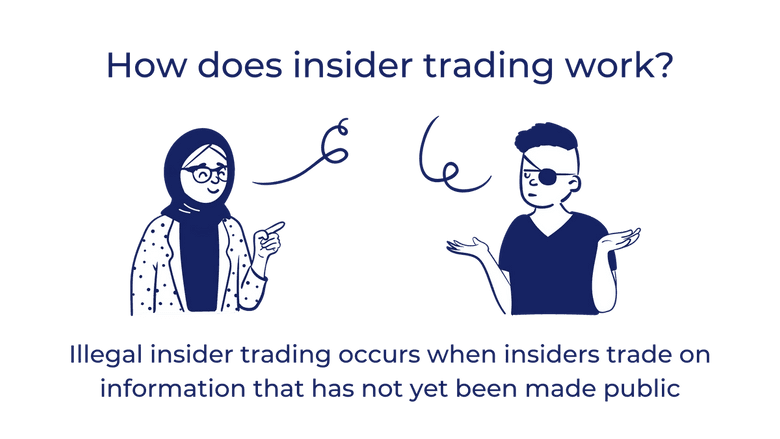What is insider trading? Isn’t it legal? How does it affect the stock market? These are the questions to know when there is something abnormal rise or fall taking place for a company’s stock.
Insider trading is the act of trading a public company’s stock or other securities based on material, non-public and confidential information. Yes, it is illegal in mostly all parts of the world. But that doesn’t stop many investors from committing the act for personal gain or for trying to beat the market as a company.

Trading in the stock market is a simple process at its core. You buy shares at a price that you predict will rise based on analysis and then sell them for a profit. Shares can be traded long-term or daily, depending upon the person’s risk appetite and capital. But when insider trading comes into the picture, it is caused by an individual or a company as a whole. It might not affect the market as others who invested do not know the confidential information, but it will make some people either very rich or very broke.
People who dwell in insider trading are doing this mostly for personal benefits, but some companies who want to get ahead of their competition might use this illegal tactic and keep it a secret within their employees and management.
Let’s look at an old but famous case of Insider Trading.
Rakesh Agrawal vs SEBI (Securities and Exchange Board of India)
In 1996, Rakesh Argawal, managing director of ABS Industries Ltd had signed a deal with a German business Bayer AG which agreed to purchase 51% of ABS Industries Ltd’s shares. Following UPSI’s (Unpublished Price Sensitive Information) announcement of the acquisition, the accused sold a significant portion of his ABS Industries holdings, which he owned through his brother-in-law, Mr.Kedia. Mr.Kedia was a well-connected individual, so SEBI held that Mr. Agrawal was guilty of insider trading and was directed to deposit Rs. 34 lakhs with Investor Protection Funds of Stock Exchange, Mumbai, and NSE, in equal proportion i.e 17 lakhs in each exchange to pay any investor who may make a claim afterward.
After the appeal of the Securities Appellate Tribunal, it was concluded that even if Mr. Agrawal had traded shares while in possession of UPSI; he was not guilty of insider trading because it was in the best interests of the company to do so as Bayer AG was not willing to acquire the company unless it could obtain a minimum of 51% of the shares and there was no intention to make a profit.
Note: This article is purely about what insider trading is, how it affects a company and its stock, and it’s illegal. The article does not condone and encourage anyone to conduct such activity.




































